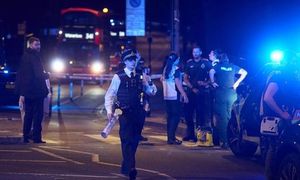François Bayrou, the Prime Minister of France, has firmly denied any knowledge of the sexual abuse allegations surrounding the institution Notre-Dame de Bétharram, where multiple former students have accused staff of violent and sexual misconduct spanning decades. This assertion came during his appearance at the National Assembly on February 11, 2025, where Bayrou faced tough questions from Paul Vannier, the LFI Deputy representing Val-d'Oise.
During the assembly, Vannier confronted Bayrou with pointed accusations: "Monsieur le Premier ministre, pourquoi n'avez-vous pas protégé les élèves de l'école Notre-Dame de Bétharram, victimes de violences pédocriminelles?" (Mr. Prime Minister, why did you not protect the students of the Notre-Dame de Bétharram school, victims of pedocriminal violence?). This inquiry referred to claims made by over 112 former students and their families, who have reported physical violence and sexual abuse dating from as early as the 1950s through to the 2010s.
Bayrou responded to the inquiry emphatically, stating, "J'affirme que je n'ai jamais été informé de quoi que ce soit, de violences, a fortiori sexuelles" (I affirm I was never informed of anything, particularly sexual violence). The Prime Minister urged the assembly to note his absence from any prior reports on these issues, arguing, "Lorsque la première plainte est déposée, en décembre 97, j'ai déjà quitté le ministère de l'Éducation nationale depuis des mois" (When the first complaint was filed, in December '97, I had already left the Ministry of Education months earlier).
This controversy has raised questions around Bayrou's connections to the institution, which his children attended, and his role as both the local mayor and former Minister of Education. Many argue it was his responsibility to have been aware of any allegations against such establishments, particularly as these reports revealed systematic issues within the institution.
To support his claims, Bayrou has suggested the timeline of events contradicts Vannier's assertions, insisting he could not have known of complainants' claims when he was no longer serving as Minister. He proposed to file a lawsuit for defamation against those who suggest he failed to act or cover up the allegations, insisting, "Je peux vous assurer que tout est faux et qu'une plainte en diffamation sera évidemment portée" (I can assure you all is false, and a defamation suit will certainly be filed).
Public sentiment around Bayrou's denials is intensely mixed. Many see his repeated assertions of ignorance as insufficient, especially when juxtaposed against testimonies from parents and other faculty members who claim to have alerted him to potential issues within Notre-Dame de Bétharram on several occasions over the years. Allegations of sexual abuse, which came to light more prominently starting from 2023, have stirred significant public unrest, prompting demands for accountability from key political figures.
François Bayrou has maintained his stance against the mounting pressure, stating, "Si on ne répond pas et qu'on se tait, on est coupable. Si on répond et qu'on dément, on est immédiatement mis en accusation" (If we don’t respond and keep silent, we are guilty. If we respond and deny, we are immediately accused).
Bayrou's statements have often evoked sentiments of exasperation. Observers noted, "La méthode est maintenant très bien connue des Français. Dès que quelqu'un occupe des responsabilités, on s'ingénie à inventer de toutes pièces des scandales" (This method is now very well known to the French. Whenever someone holds responsibilities, they are made the subject of invented scandals). His portrayal of the accusations as politically motivated has only added fuel to the fire.
Given the avalanche of allegations and testimonies from various former students and teachers at the institution, including evidence of physical punishments reported as far back as 1996, calls for independent investigations and heightened scrutiny around the handling of such allegations are echoing throughout French society.
The political ramifications of this situation extend beyond personal controversy for Bayrou; it reflects broader societal tensions around institutional accountability, especially within long-trusted establishments like schools. With the inquiries and investigations still underway, the outcome of Bayrou's legal actions and the continuing fallout from these allegations remains to be seen.
The inquiry led by the Pau prosecutor's office, which has been examining these allegations for over a year, now seeks to address whether systemic abuses were overlooked by those in positions of authority like Bayrou and other local officials, who may have had the power to intervene.
For now, as political tensions rise and more victims come forward, it is clear this story has only just begun, promising to be one of the significant discussions shaping France's political and social narrative concerning abuse and accountability.



